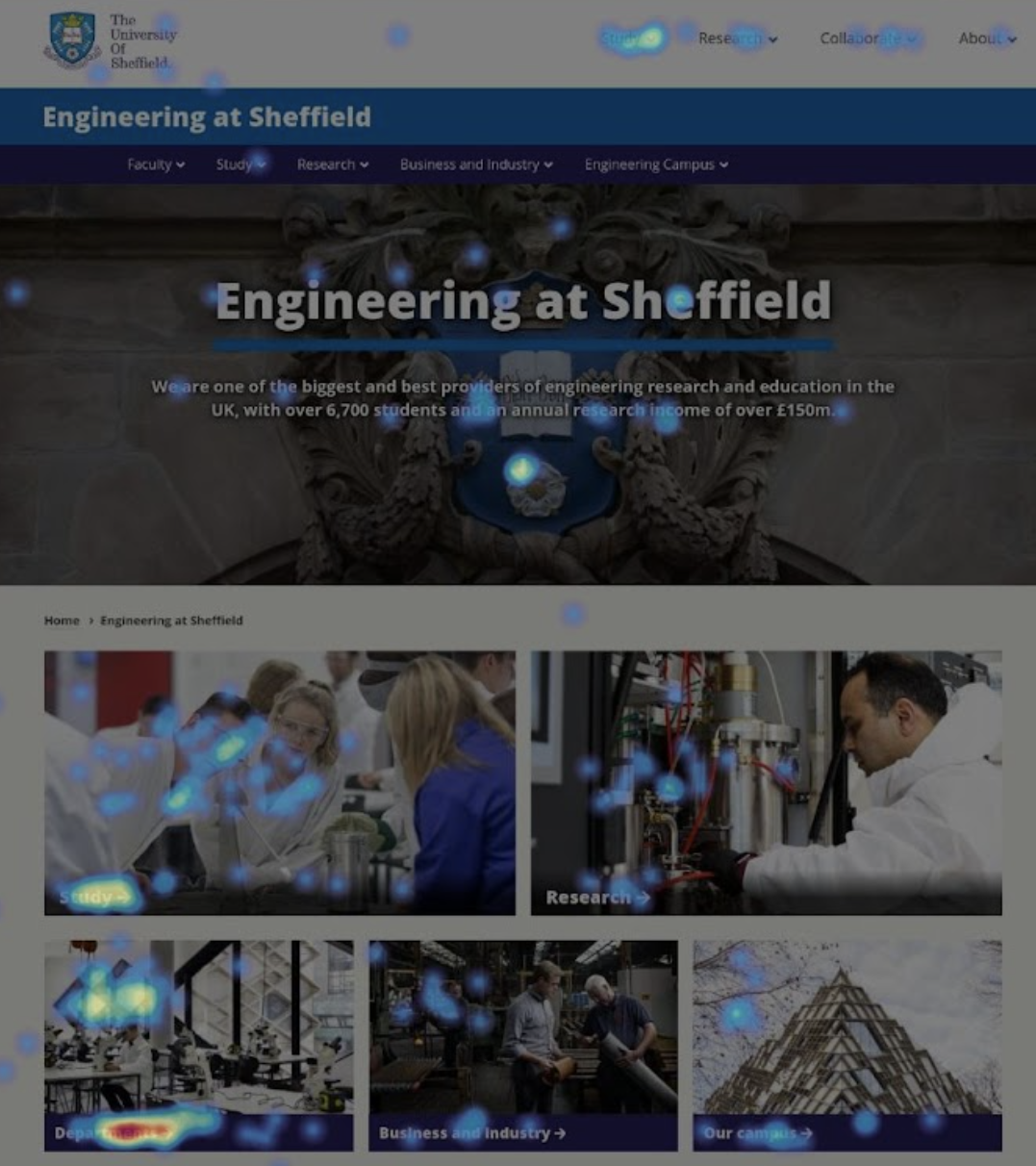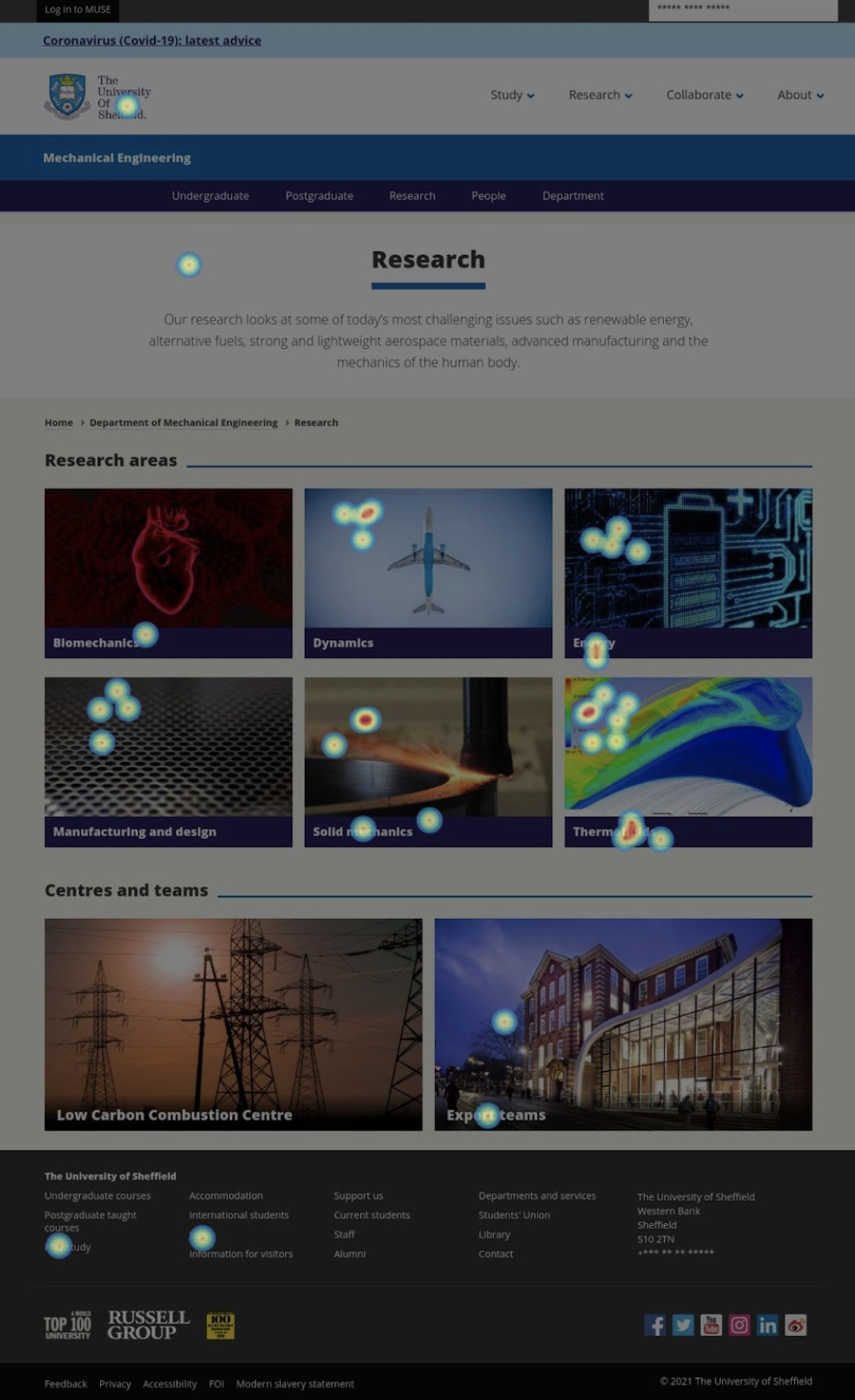University of Sheffield, Faculty of engineering: creating powerful and engaging research content
When it comes to creating research sections on our university websites, there are so many different ways that we could present and structure this, and so many stories that we can tell, that it can all become a little overwhelming. Better understanding our audiences is always going to be the best starting point to unravel a new solution. And that’s where the Faculty of Engineering at the University of Sheffield started working with us.
There were many questions that needed clearer and informed answers:
What do people really want to see on the research pages of our website?
Where do they expect to find that information?
What’s the optimal way to structure the content across teams, research groups, departments and faculties?
And what can we produce that would really inspire and engage people with our research?
Who should produce and own that content?
How should Faculty-owned content work with centrally managed research pages, research stories and content?
What level of complexity should we be communicating?
How do we design our content and structures so that we can also foster collaboration within the university itself?
These are just some of the questions that the Faculty of Engineering at the University of Sheffield were grappling with. And so they partnered with us to help them find the answers to inform their next steps.
Our brief was to lead a research phase, the insights from which would inform the Faculty’s future content strategy and web developments. Our work included:
Extensive stakeholder interviews and workshops across the Faculty and the wider university community
Research with representatives of the Faculty’s high priority target audiences
A review of best practices from other organisations that have a need to communicate their research strengths, including organisations from outside of the higher education sector
A review of how visitors are already engaging with the existing site and its content.
This resulted in a research report, including a presentation to the Faculty’s senior leadership team, that would inform their next steps in designing their content strategy.
Following this work we also supported the faculty by providing training sessions on developing their content strategy and designing their approach to content operations, workflow and governance.



